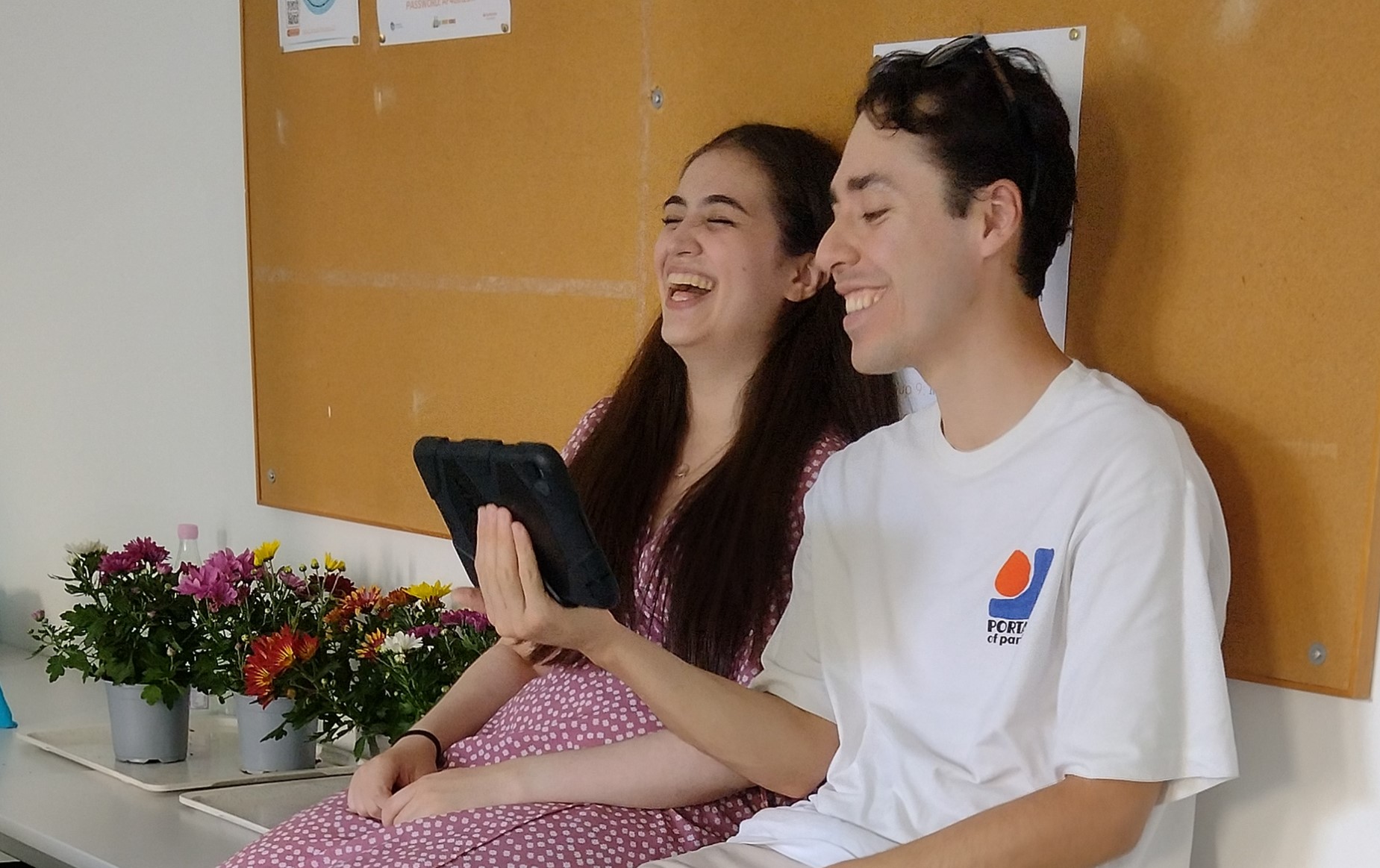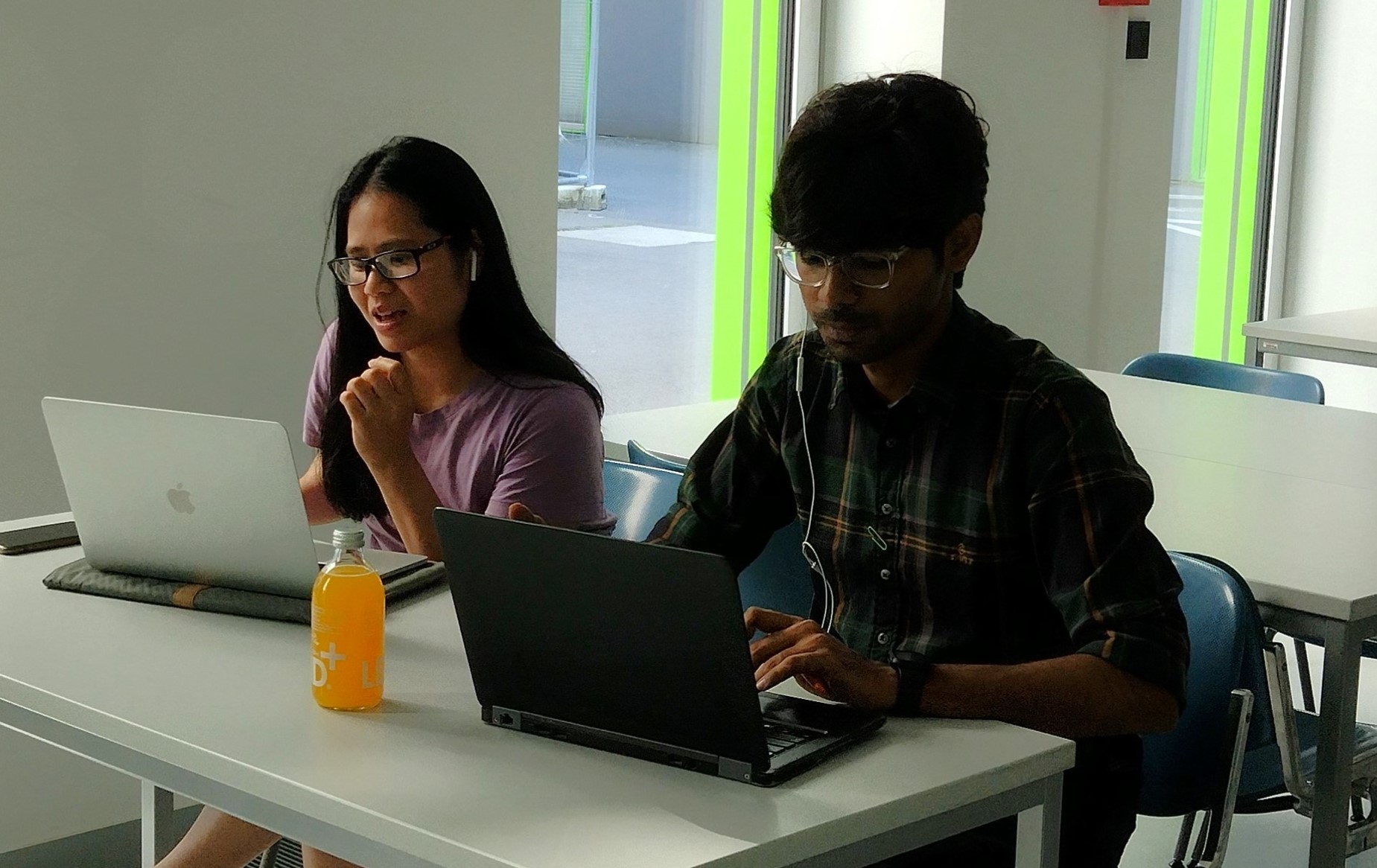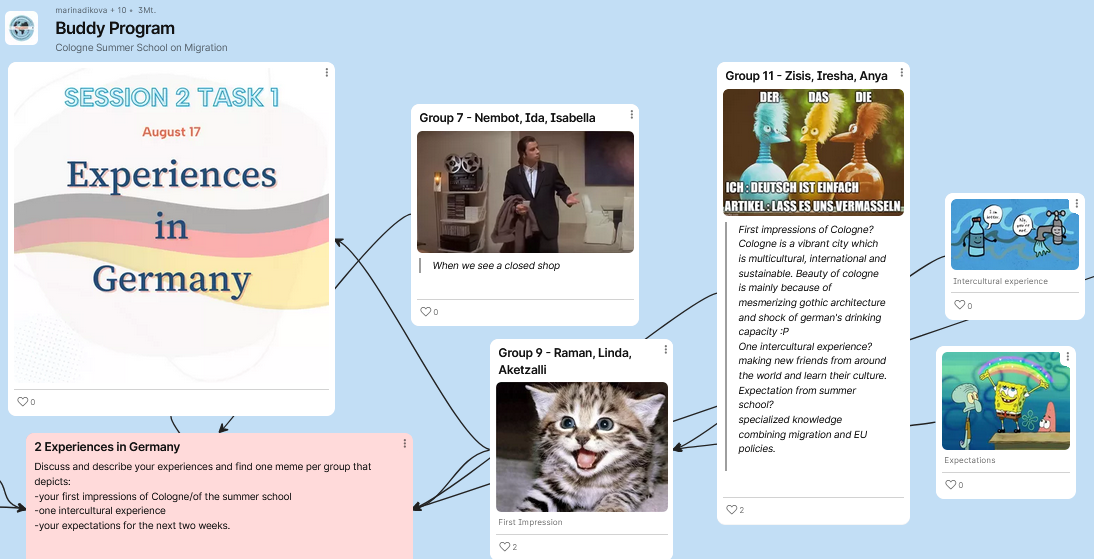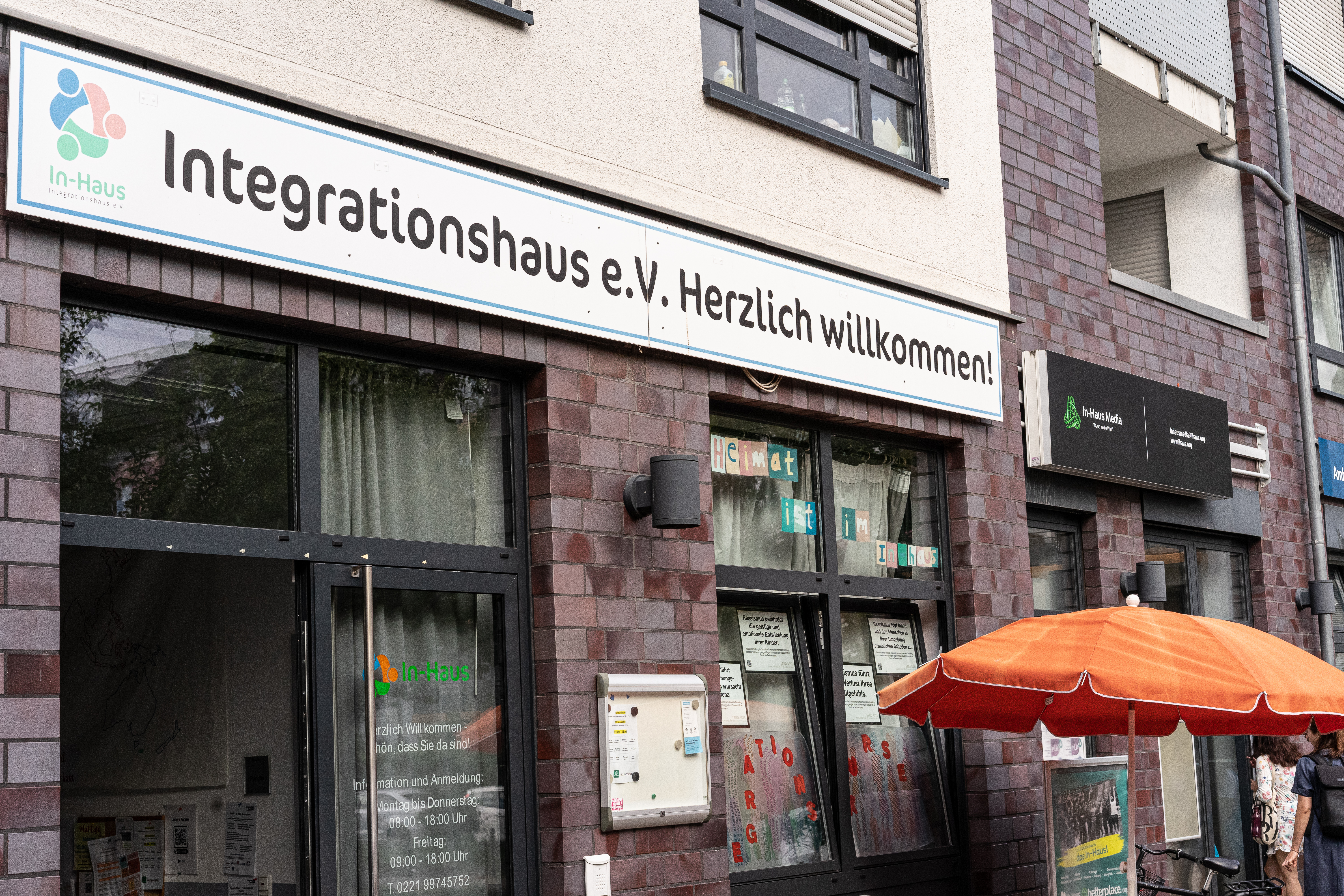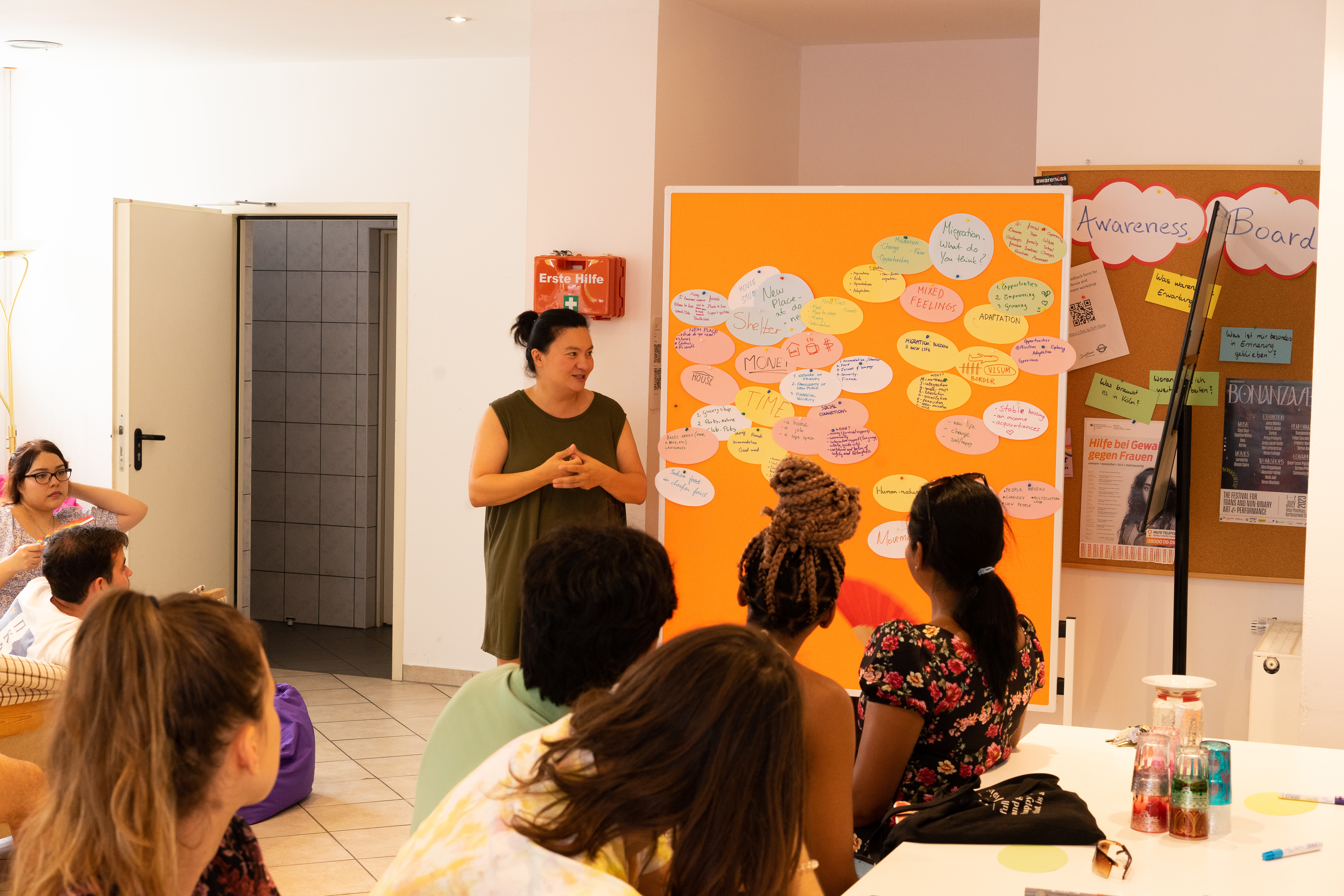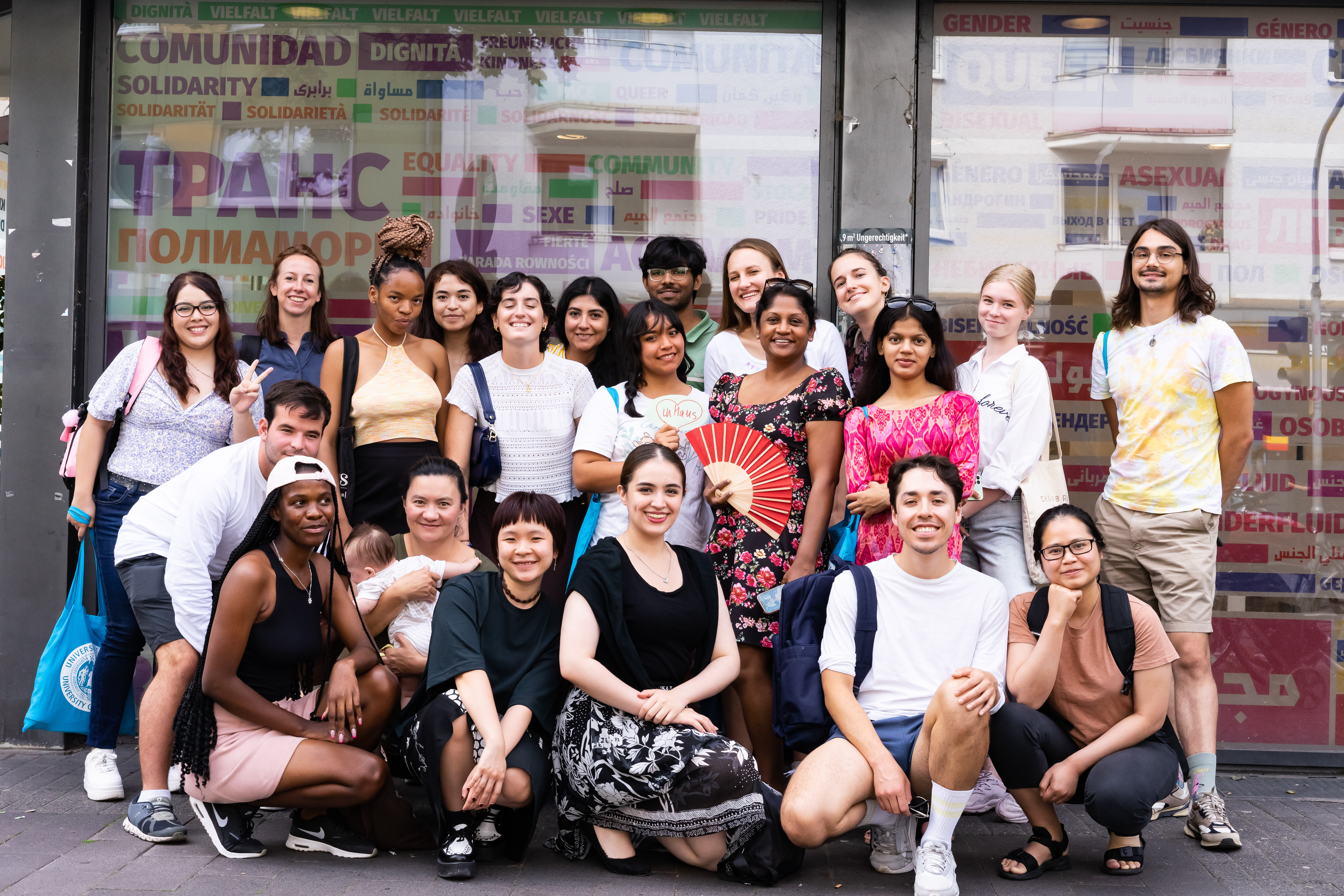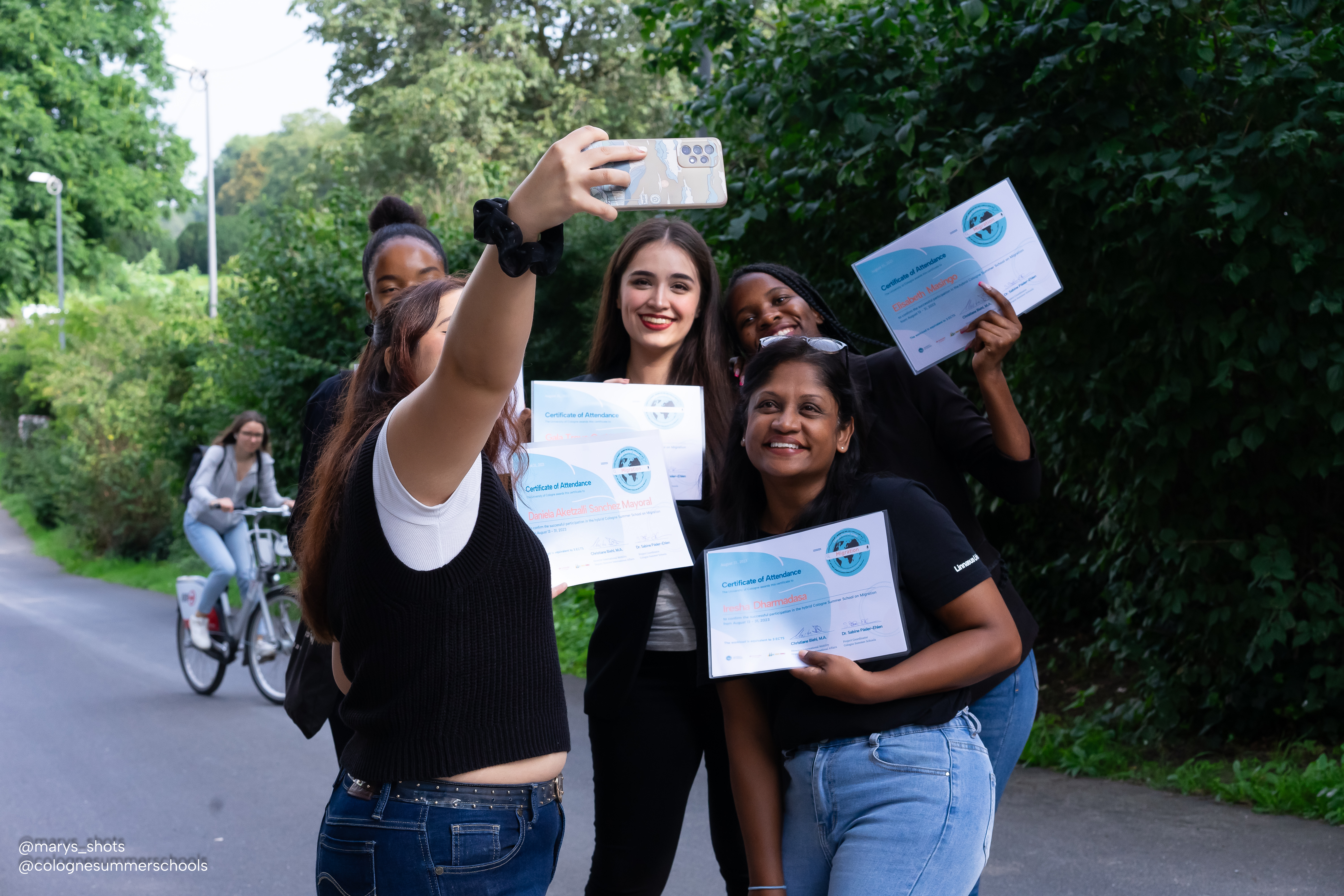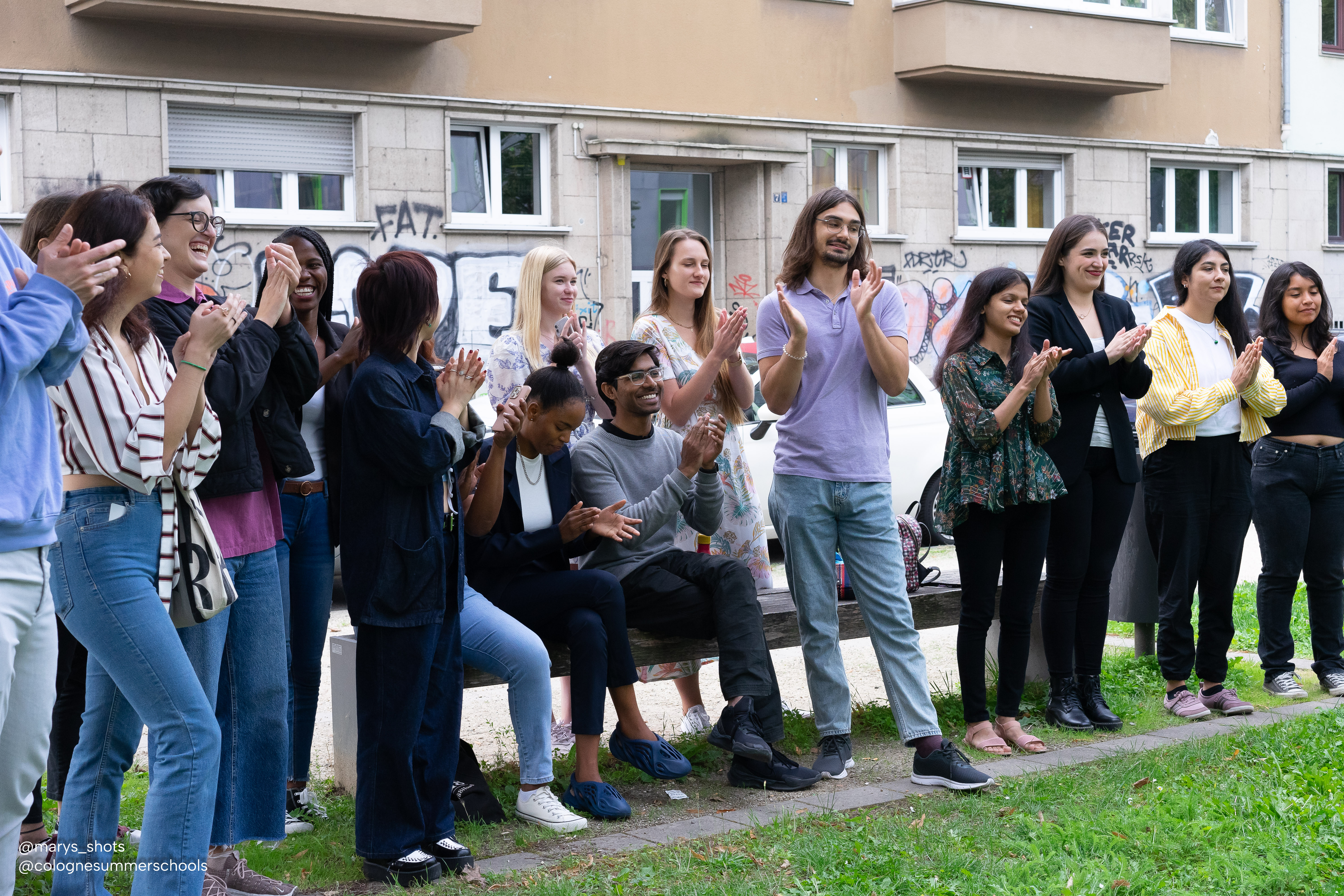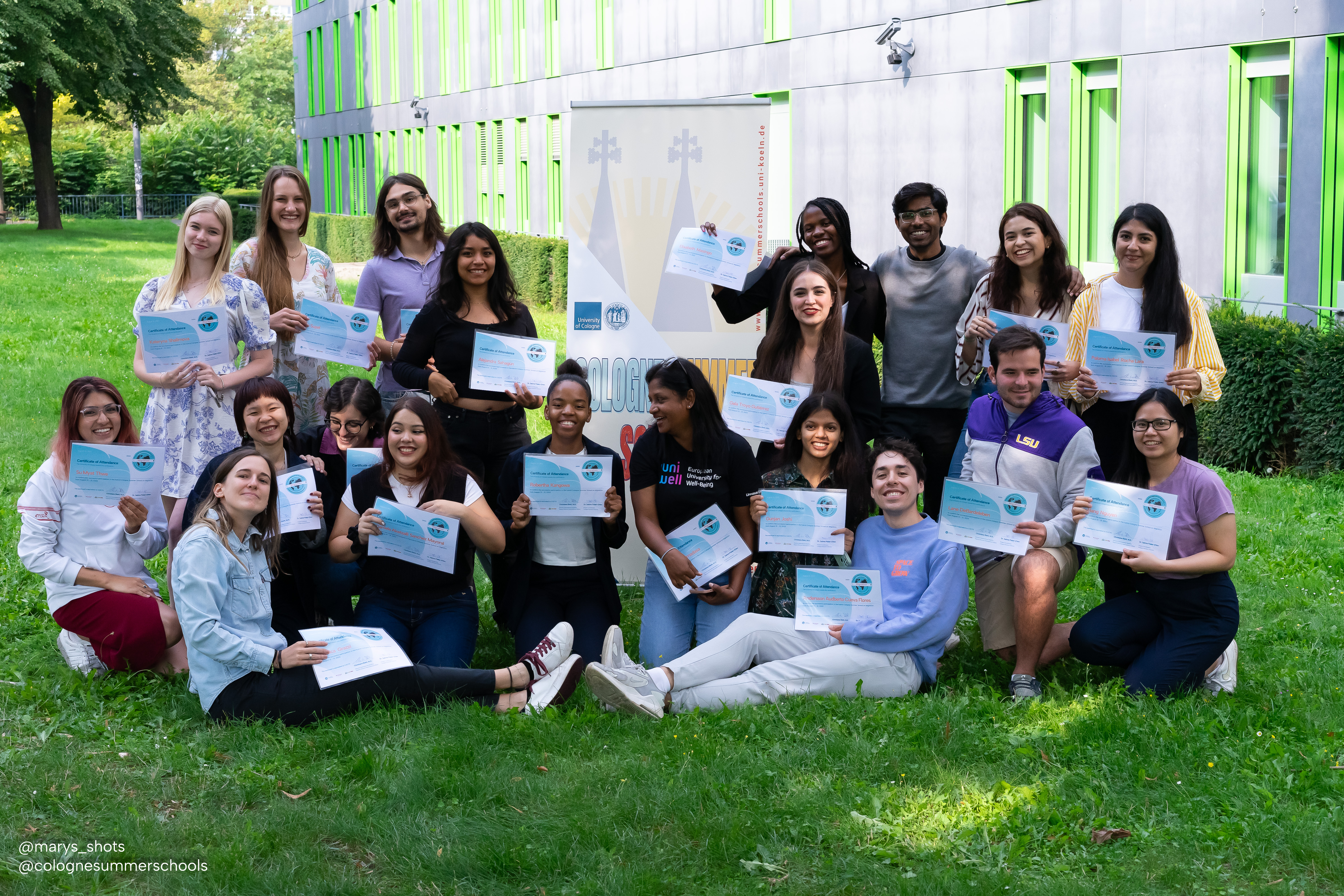Hybrid Program, International Buddies and Exciting Cultural Events
The hybrid format of the annual Cologne Summer School emerged as a consequence of the pandemic and quickly became one of the most important assets of the program. The Cologne Summer School on Migration in 2023 was the second edition of the key project that was realized as a hybrid project. Learning from the participants' feedback from last year, we further developed the positive aspects of the hybrid format and analysed and adjusted the ones that needed reconsideration. Ironically, the biggest strengths of the hybrid program - the creation of more equal participation opportunities, the overcoming of geographical barriers and a boosting of intercultural cooperation - are simultaneously the biggest challenges in terms of group communication and dynamics.
Therefore, we developed special social program units in the hybrid format to foster intercultural exchange, for example our buddy program or the networking event with CSS alumna Arina Deriugina. Learn more about our buddy program below. During the hybrid networking event Arina, who is an international Master student in Germany, presented ways of how to make a living in Germany as an international student without a (substantial) scholarship. The presentation was followed by a casual Q&A session providing opportunities to network for onsite and online participants.
Moreover, we organzied cultural events for the onsite and online group to intermingle in their specific spaces: The onsite participants explored the old city and the Cologne Cathedrale, while the online participants visited a virtual exhibiton of the Cologne situated museum DOMiD (Documentation Center and Museum of Migration in Germany). Further cultural evening events after the hybrid academic program were a guided walking tour in Nippes in the so-called "African Neighbourhood" with Serge Palasie for the onsite group, while the online group learnt more about Germany and Cologne Culture in the "Digital Cologne Quiz". Read more about the program highlights of this year's Cologne Summer School below!
The CSS Buddy Program
The buddy program is one of the highlights of the social program during the summer school: We created special time-slots in the hybrid program schedule that were dedicated to networking between onsite and online participants. Each online participant was paired with two buddies form the onsite group. In four buddy sessions we invited the teams to interact in a more casual mode and to get to know each other better: The onsite participants shared insights about their experiences in Cologne and about the German culture, the buddies chatted about their intercultural travel stories and imagined together how their perfect buddy day would look like. Scroll through the pictures in the gallery, read the participants' testimonials and get an idea of how much fun the buddy program was!
Gallery Buddy Program
The buddy program was the best part of the summer school. The last 30 minutes (of the day), where we worked in groups, made me feel an integral part of the program.
It was a great way to interact closer to some of the participants, which would have been impossible otherwise. It was more than I expected, truthfully. The organization was on point and that made things run smoothly.
The buddy program was the best part of the Summer School. It helped to learn about the onsite participants, their cities, and their culture. I am a person who is highly interested in learning about others' cultures, and that's why it was the best part for me. I explored a lot of differences between my and others' culture.
Study Trip: In-Haus
On August 22 the students went on an exciting study trip to the In-Haus in Köln Kalk - a neighborhood in Cologne where a lot of citizens with migration backgrounds live. The team of the In-Haus (Integrationshaus e.V.) welcomed the participants very warmly. After a tour of their office with consulting and seminar rooms they showed us their In-Haus Media Center where the team and associated people produce podcasts, music, and video recordings for diverse projects. After a walk to the nearby Democracy Space a workshop with Elizaveta Khan, the founder and executive manager of the NGO, started. She invited the participants to think about the questions "Migration - what do you think?" and "A new place - what do you need?". Collecting ideas and answers a lively conversation about causes and conditions of human mobility in general and regarding individual stories developed. Referring to the stories of migrations Elizaveta Khan talked about the work in the In-Haus. The NGO was founded to support migrants and refugees in Cologne who need support for bureaucratic issues and appointments with local authorities, are looking for language courses and cultural activities, and many more. The In-Haus is a place to network, make friends, and create and support diversity in society. The study trip to the In-Haus provided the students with valuable insights into community work in the field of migration. A big thank you goes to the team of the In-Haus!
Site Visit: DOMiD - Documentation Center and Museum of Migration in Germany
On August 25 we visited the non-profit association DOMiD - Documentation Center and Museum of Migration in Germany situated in Köln Ehrenfeld. Dr. Robert Fuchs, the executive director, welcomed the group of international students. He gave an enthusiastic presentation on the development, engagement and achievments of DOMiD which is dedicated to collecting, preserving and showcasing the history of migration in Germany. Labour immigrants from Turkey founded the association in 1990 because they noticed that their experiences and histories weren't presented and preserved in books or exhibitions in the former Federal Republic of Germany. They were motivated by the lack of visbility and acknowledgement: neither historians nor museums nor archives were paying attention to the history of immigrants. Since then, the collection of the documentation center grew thanks to a bottom-up grassroots effort: photographs, music records, newspapers, and a wide range of everyday objects can be found in the stocks and exhibits. It's a unique collection of migration history in Germany, even in Europe! The participants of the Summer School were deeply impressed by DOMiD's work and talked about similar examples from their home countries. Together with the director they discussed the potentials of a museum of migration as a space to encounter, learn and share experiences in a society that is acknowledging its people's diversity and multi-faceted histories.
Visiting DOMiD was definitely one of the highlights of this year’s Summer School program!
Certificate Awarding
The certificate awarding at the end of the Summer School was the final highlight of the academic program. During the third week the participants presented a self-study project on the topic of human mobility to their fellows and a special guest, the vice-chancellor of the University of Cologne, Ms. Ina Gabriel. After the final presentations which were very insightful the students received their certificate of participation in the Cologne Summer School on Migration. Have a look at the pictures in the gallery and get an impression of the intellectual and intercultural adventure that the students were part of!
What are Cologne Summer Schools?
What does a Cologne Summer Schools project consist of?
Who can apply?
Are Summer Schools designed only for international students?
Which projects can I apply for?
What are the application requirements?
How much does the participation in a Cologne Summer Schools project cost?
Do you have other questions?
Contact us via email. We are happy to help!
Project Team
Project Team
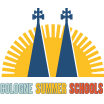
Jukka Jokela M.A. (pronouns he/him)
Project Manager Cologne Summer Schools
Telephone +49-221-470-90812 / +49-221-470-90803
E-mail CologneSummerSchools[at]verw.uni-koeln.de
